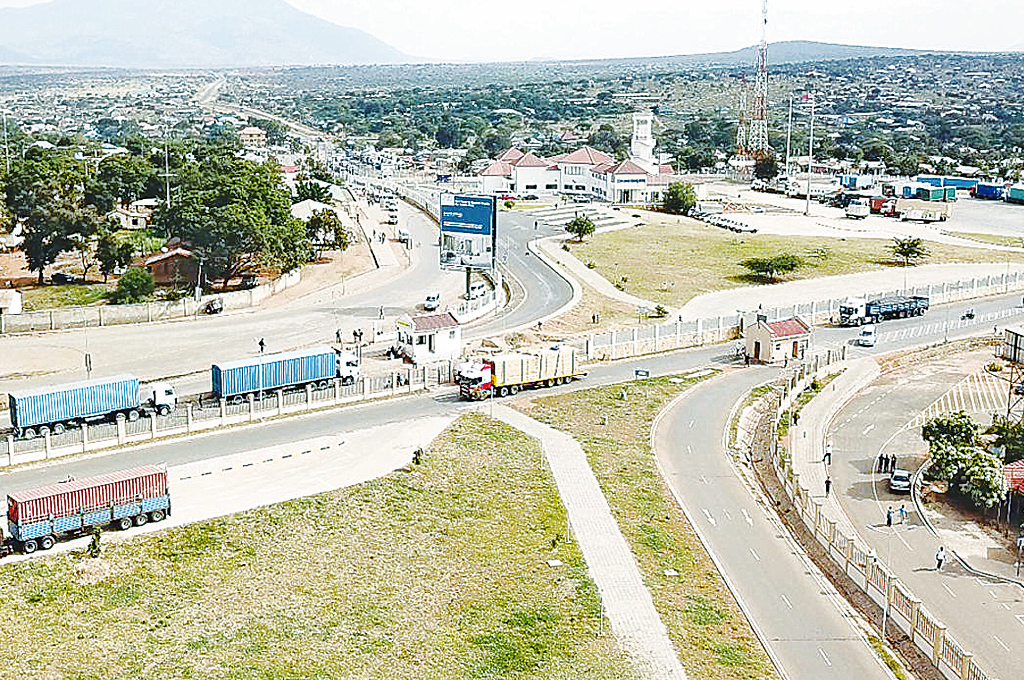AfricaPress-Tanzania: AS the East African Community emphasized on the need to enhance domestic production of key medical products to fight coronavirus, addressing cross border bottlenecks is of paramount in order to allow free movement of goods.
On Friday last week, the partner states were directed by a Joint consultative meeting of Partner States’ Ministers and Cabinet Secretaries responsible for Health, Trade, Transport and EAC Affairs to support local production of essential medical products and supplies including masks, sanitizers, soaps, processed food, ventilators as part of efforts to combat Covid-19 in the region.
The Chairperson of the Council of Ministers, and Rwanda’s Minister of Foreign Affairs and International Cooperation, Dr Vincent Biruta, discussed progress made on the facilitation of the free movement of goods and services in the region.
The assessment of state of play on cross border clearance of cargo and truck drivers at Malaba and Busia during the Covid-19 pandemic.
Others are the impact of the Covid-19 pandemic on the region’s productive capacities and impact on macroeconomic stability.
Recently the East Africa Business Council urged on the need for the EAC partner states to agree and implement a coordinated regional approach on Covid-19 to facilitate free movement of cargo across the EAC region.
“The EAC partner states to hold bilateral meetings to unlock barriers to free movement of cargo across the EAC region,” Dr Peter Mathuki, the EABC Chief Executive Officer (CEO), said at the National Focal Points Chief Executive Officers Meeting.
The ministries of EAC affairs should engage the ministries of trade, transport, health including other line ministries and trade facilitation agencies in a bid to ensure measures on Covid-19, do not cause unnecessary cost and time burden to the free movement of goods and services in the EAC region.
“We should not discriminate or put fear or stigma to essential service providers but treat them with respect and understanding,” he said.
Also the National Transport Associations coordinated by the Federation of East African Freight Forwarders Association (FEAFA), to work closely with EABC to enhance information sharing in a bid to facilitate the free movement of cargo across EAC borders.
EAC Partner States, Development Partners and Private Sector should continue undertaking sensitisation campaigns to the public, truck drivers, women cross border traders on Covid-19 to avoid misinformation and stigmatisation.
Furthermore, mask among other Personal Protective Equipment (PPEs), to be given to truck drivers as the EABC is trying to procure thermo-guns and masks for truck drivers to support the free movement of cargo within the region.
According to the EAC Trade and Investment Report 2018, formal trade among the EAC partner states largely constitutes of chemicals, textile, iron and steel.
Agricultural commodities also form a large portion with significance in food items like rice, maize, sorghum, coffee, tobacco, wheat and other cereals.
However, manufactured goods such as cement, petroleum, textiles, sugar, confectionery, beer, salt, fats and oils, paper, plastics and pharmaceuticals are also traded across the Region.
The informal cross‐border trade represents produced goods and services, which directly or indirectly do not pass through the regulatory framework for taxation and other procedures set by Partner States.
Its importance in poverty reduction in EAC is significant as women SMEs constitute about 74 percent of the traders.
The private sector body urged partner states to consider improving the business and regulatory environment to ensure formalisation of businesses in the partner states.
The outbreak of coronavirus has increased restriction on the movement of goods and people across borders threatening the livelihoods of traders and their families, and reduced revenue for partner states.
Also, this has caused a significant disruption in the global value chains with China being the hub of manufacturing for most business operations.
The EACBC said in its report on the impact of Covid-19 on trade that the spillover effect of this disruption has been felt by other African economies and largely by East African businesses being suppliers and importers of goods and services in the global economy.
As part of the immediate recovery strategy, the EACBC counseled partner states to consider full liberalisation of open skies for free movement of cargo within and out of EAC.
Also that member states look for alternative markets for EAC imports and exports to reduce dependency on a few countries.
On average, EAC countries source 6 percent of their total imports from the region, and supply 20 percent of their total exports to the region.
The cross border trade has emerged as a remedy that could reduce this adversity through flow of essential goods like food, medical supplies and other hygiene products.
Also, partner states need to provide support to key industries to expand their capacity and establish new industries to manufacture import substitutes in the region.
Dr Mathuki, said in a special report on snapshot survey that in order to mitigate the impact of the reduced cash flow, EABC urges EAC governments to allocate enough funds to cater for outstanding Value Added Tax (VAT), refunds and domestic debts.
The payment will give businesses the needed liquidity to boost their working capital during the Covid-19 period.
He noted that the research findings have led to proposals that central banks need to extend lending facility to commercial banks and release special funds, lower Central Bank Rate (CBR) to enable commercial banks borrow at a lower rate and lend to businesses at lower lending rates.







